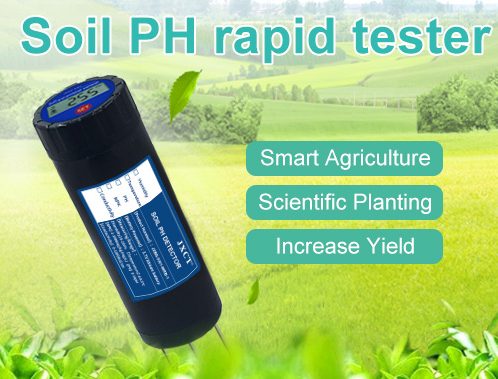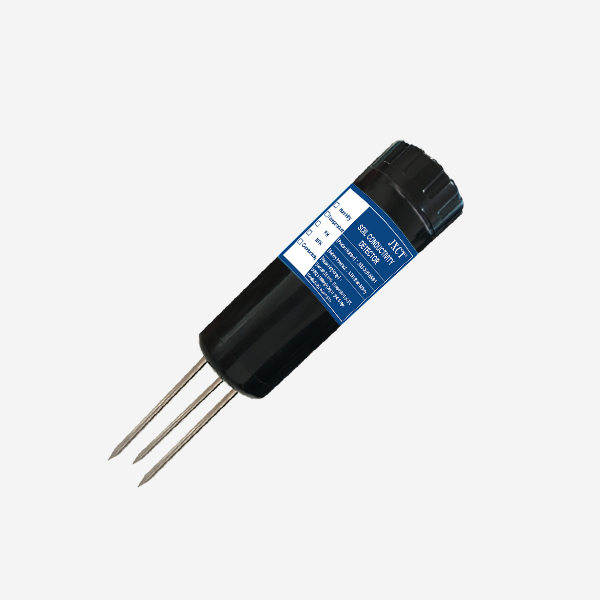Soil pH sensors are cutting-edge devices that play a pivotal role in modern agriculture by enabling precision soil management. These sensors are designed to measure the acidity or alkalinity of the soil, providing farmers with real-time data to optimize pH-dependent processes such as nutrient availability, microbial activity, and plant growth. This essay aims to explore the significance of soil pH sensors, their working principles, applications, and the impact they have on promoting sustainable and efficient agricultural practices.
Learn about Soil pH sensors

Soil pH sensor are instrumental in addressing the challenges of soil management in agriculture, where the pH level of the soil profoundly influences nutrient availability and microbial activity. These sensors utilize advanced technologies, such as ion-selective electrodes and spectroscopy, to measure the pH of the soil accurately and efficiently. By providing precise and real-time data on soil pH, these sensors enable farmers to make informed decisions regarding lime application, nutrient management, and crop selection, thereby optimizing soil coworking principle of soil pH sensornditions for sustainable and productive agriculture.
Working principle of soil pH sensor
The working principle of soil pH sensors involves the use of cutting-edge technologies to detect and quantify the pH of the soil. Ion-selective electrodes are commonly used in soil pH tester to measure the concentration of hydrogen ions, which is directly related to the acidity or alkalinity of the soil. Spectroscopic sensors, on the other hand, analyze the interaction between light and soil samples to determine pH levels. By leveraging these technologies, soil pH tester enable farmers to assess soil acidity or alkalinity, make informed decisions about soil amendments, and optimize soil conditions for crop production.
Advantages of soil pH sensor

One of the key advantages of soil pH sensor is their ability to provide real-time and site-specific data on soil pH levels, allowing farmers to implement precision soil management strategies. By accurately measuring soil pH, these sensors enable farmers to adjust lime application, select appropriate crops, and optimize nutrient management practices based on the specific pH requirements of their fields. This precision soil management approach not only enhances crop productivity but also contributes to the conservation of natural resources and the protection of the environment.
Applications of Soil pH sensors
Soil pH tester have diverse applications in modern agriculture, ranging from optimizing soil pH for specific crops to managing pH-dependent processes in different agricultural production systems. In crop-specific applications, soil pH tester are adjust the pH of the soil to meet the specific requirements of different crops. For example, certain crops thrive in slightly acidic soil, while others require neutral or slightly alkaline soil conditions. By using soil sensors, farmers can tailor soil management practices to create optimal growing conditions for various crops, thereby maximizing productivity and quality.

In addition to crop-specific applications, soil pH sensor are also utilized in precision agriculture to manage pH-dependent processes such as nutrient availability and microbial activity. By monitoring soil pH in real time, farmers can adjust nutrient management practices to ensure that essential nutrients are available to plants at the right pH levels. Furthermore, soil pH sensors play a crucial role in promoting sustainable and efficient agricultural practices by minimizing the use of lime and other soil amendments, reducing input costs, and minimizing environmental impact.
The impact of soil pH sensor
The impact of soil pH tester on promoting sustainable and efficient agricultural practices is significant. By enabling precision soil management, these sensors contribute to the optimization of soil conditions, enhancement of crop productivity, and minimization of environmental impact. In the context of environmental sustainability, soil pH tester help minimize the environmental impact of agriculture by reducing the overuse of lime and other soil amendments, thus preventing soil degradation and minimizing the leaching of nutrients into water bodies. This, in turn, contributes to the preservation of natural ecosystems and the overall sustainability of agricultural production systems.
Conclusion
In conclusion, soil pH sensor have become as indispensable tools for precision soil management in modern agriculture. Their ability to provide real-time and site-specific data on soil pH levels has revolutionized soil management practices, enhanced crop productivity, and minimized environmental impact. As the global demand for food continues to rise, soil pH sensors will play a crucial role in promoting sustainable and efficient agricultural practices, ensuring the responsible use of soil amendments and the long-term viability of agricultural production systems.
